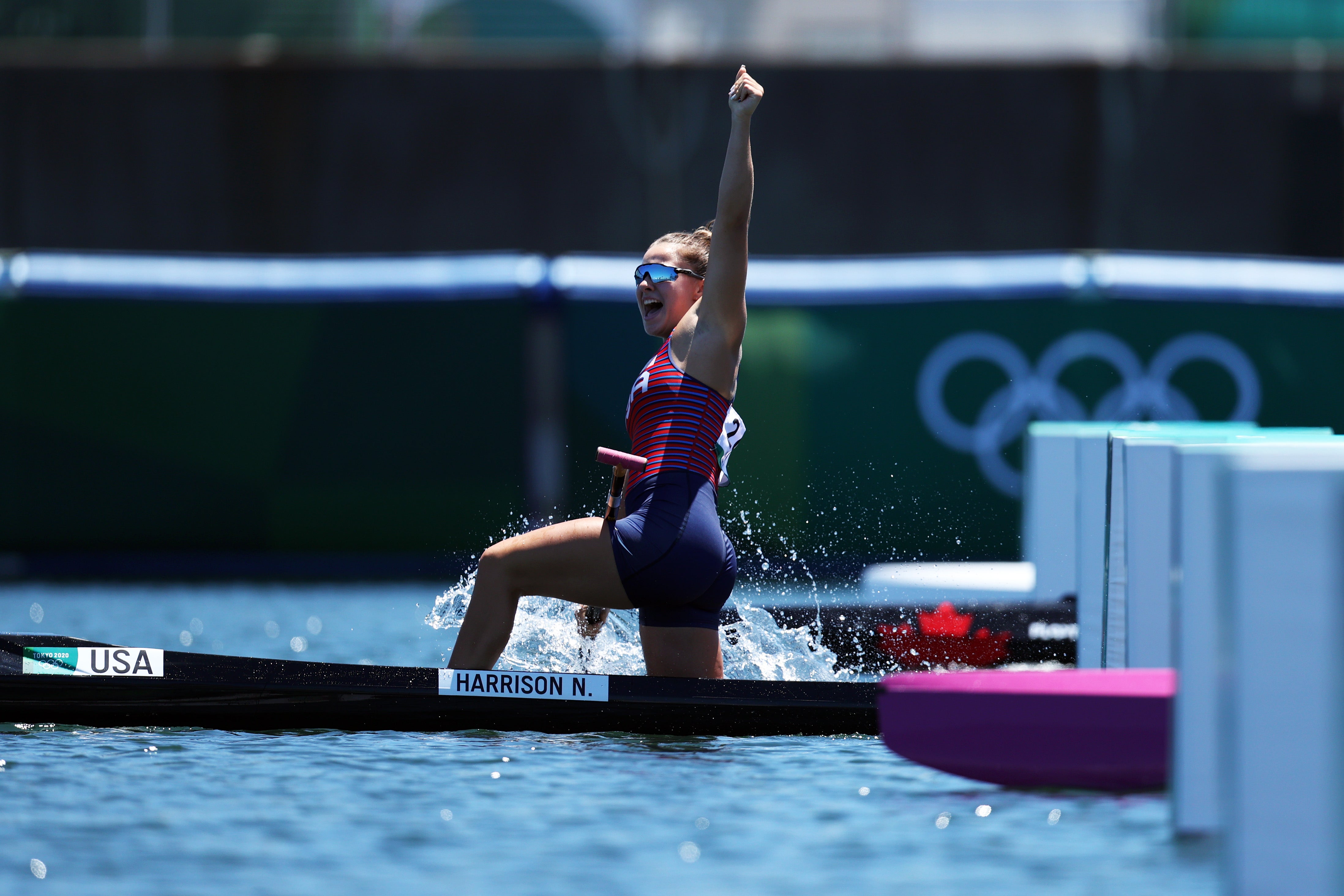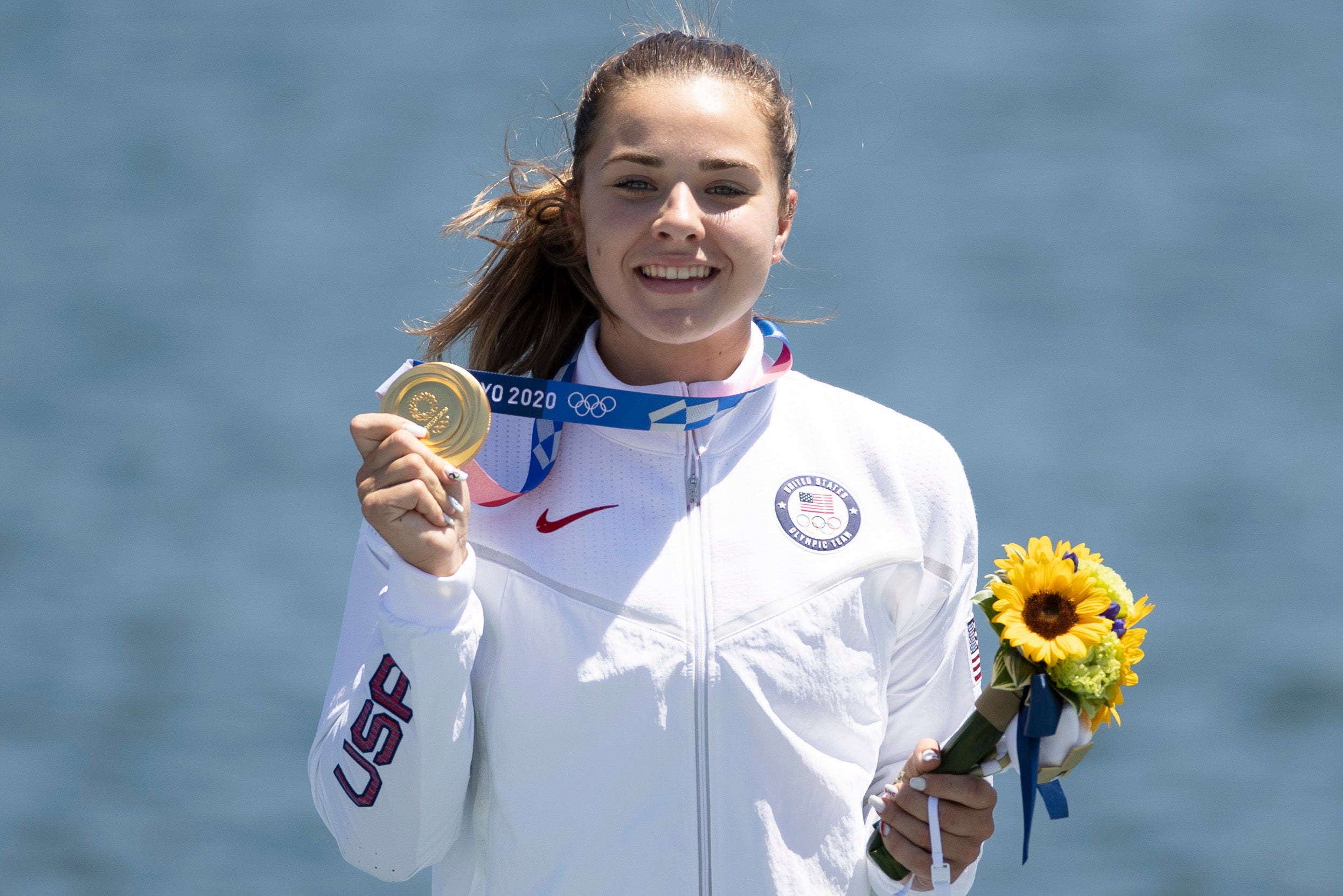Nevin Harrison’s athletic dreams were shattered by injury – so she won gold as a canoeist instead
Athletics dream ended at 14 and five years later American Olympian achieved Tokyo glory

Your support helps us to tell the story
From reproductive rights to climate change to Big Tech, The Independent is on the ground when the story is developing. Whether it's investigating the financials of Elon Musk's pro-Trump PAC or producing our latest documentary, 'The A Word', which shines a light on the American women fighting for reproductive rights, we know how important it is to parse out the facts from the messaging.
At such a critical moment in US history, we need reporters on the ground. Your donation allows us to keep sending journalists to speak to both sides of the story.
The Independent is trusted by Americans across the entire political spectrum. And unlike many other quality news outlets, we choose not to lock Americans out of our reporting and analysis with paywalls. We believe quality journalism should be available to everyone, paid for by those who can afford it.
Your support makes all the difference.Nevin Harrison’s dreams of starring in track and field were shattered by injury at the age of 14, so she switched sports and won an Olympic gold medal in Tokyo as a canoeist.
Harris was told by doctors five years ago that her running career was over because of pain caused by hip dysplasia, a condition more commonly found in dogs.
With her hip socket and thigh bone not properly connected, the pain became too much and she had to give up sprinting.
“I always dreamed of it being in track,” she said of one day making the games.
Just three years after giving up sprinting, she was crowned a world champion in canoe racing, and two years after that she won gold in Japan.
The Seattle-raised athlete’s time of 45.932 seconds was quick enough to make her the champion in the inaugural race of the 200m event.
Harrison, 19, was the only teenager in the race, but held her nerve to win gold.
“It was scary to say the least. There were nerves. There was fear,” she admitted after crossing the finishing lone nearly one second ahead of the next competitor.

“It’s such a crazy, big dream. And it doesn’t ever seem like it’s actually achievable,” she added.
“So crossing that finish line, and looking around, and seeing I was first, was really surreal.
“Everything I ever kind of dreamed of as a kid, and even in the last few years, was finally true! It happened. So I’m really happy.”
After her initial success in canoeing, she moved from Washington to Georgia to train and get ready for Tokyo.
“It was definitely a hard transition for someone that was supposed to be a senior in high school, and going to prom, and having a regular life,” she said.
And unlike sprinting, in canoeing she had no previous American champions to look up to.
“It’s been a hard journey because I didn’t have anyone to really follow.”
And she admitted her Olympic win was more than she could have even imagined as a track athlete.
“This is so much better,” she said.
“And I really love it. I love being on the water. I love being outside. So it’s perfect.”
Join our commenting forum
Join thought-provoking conversations, follow other Independent readers and see their replies
Comments